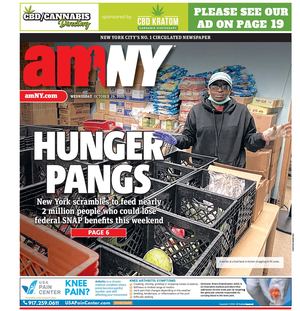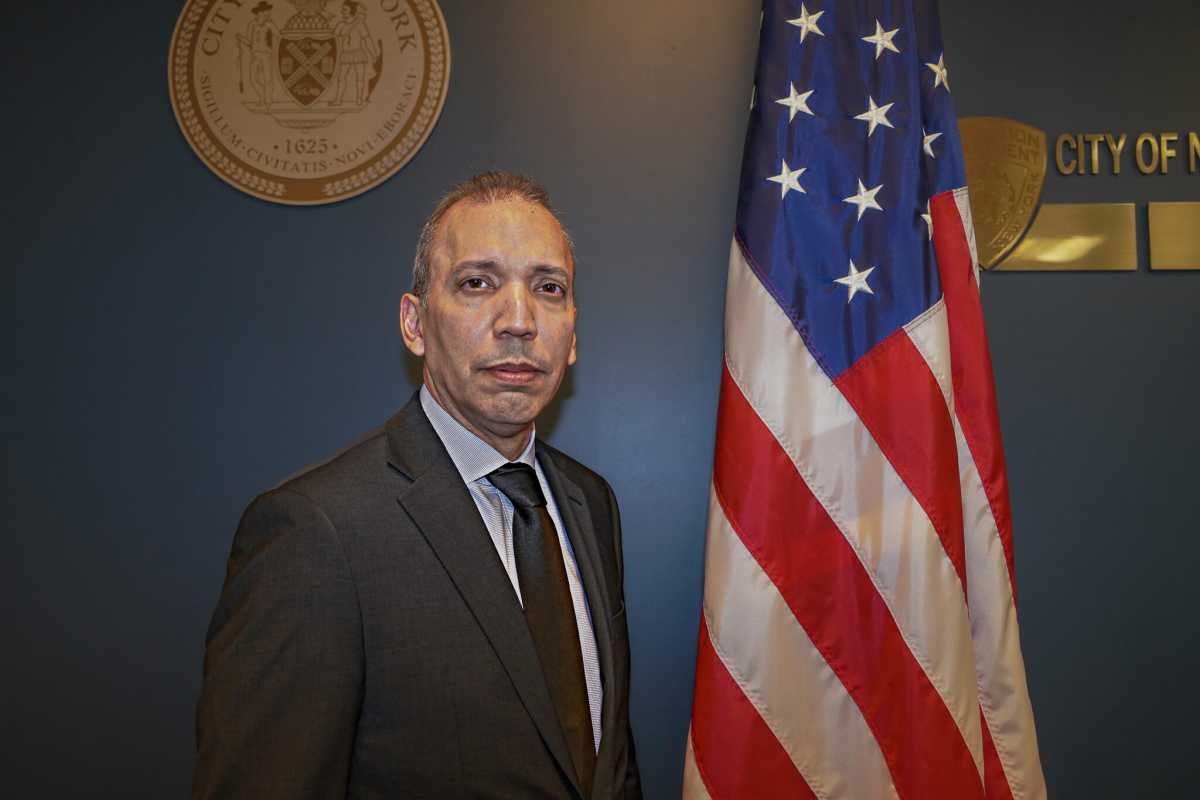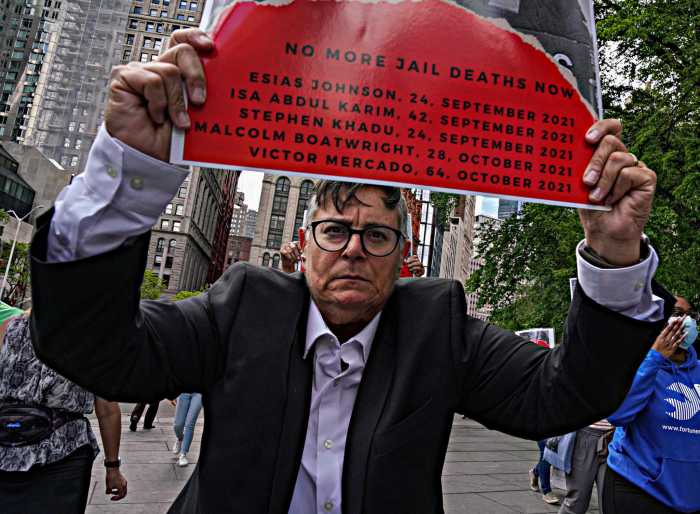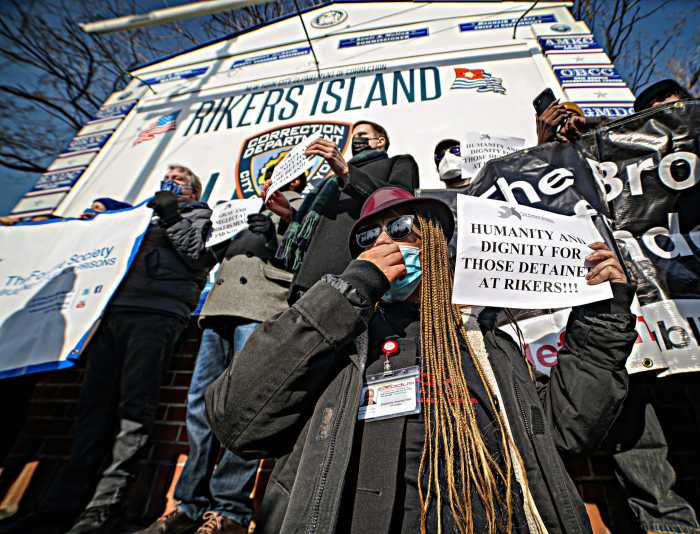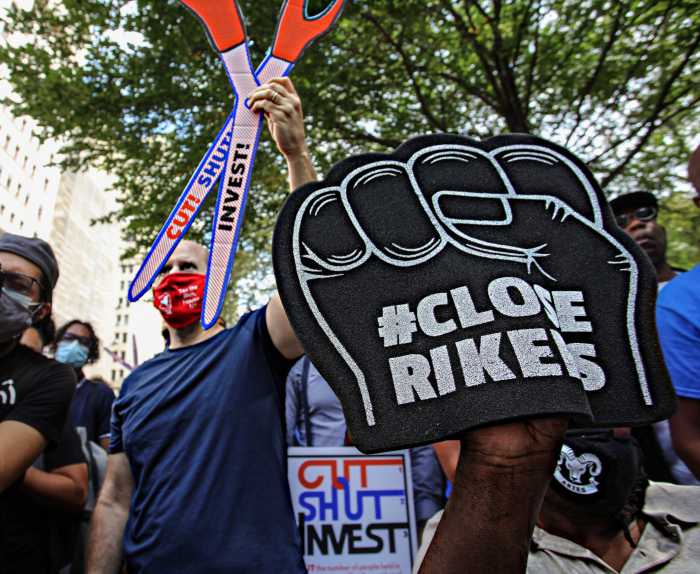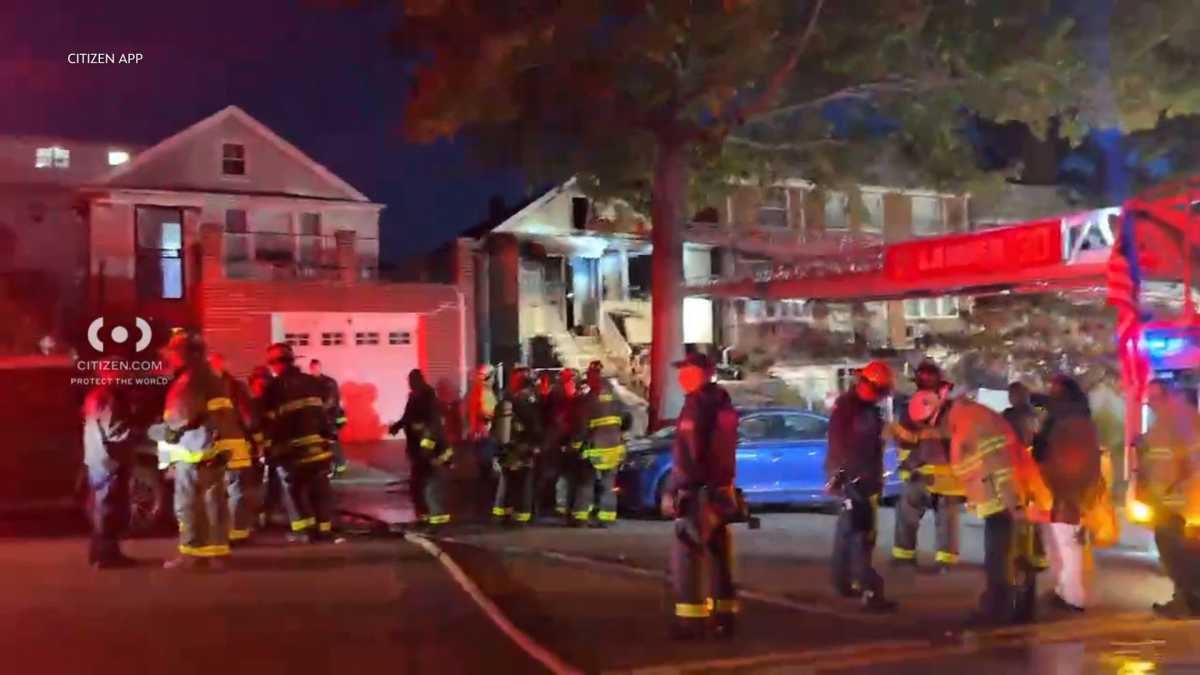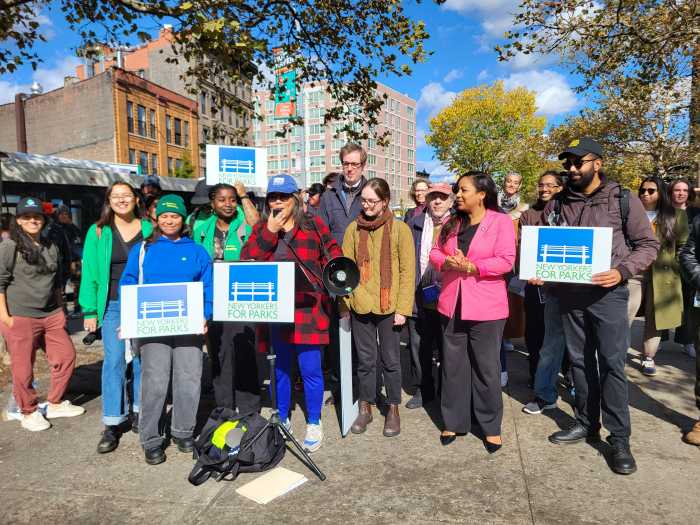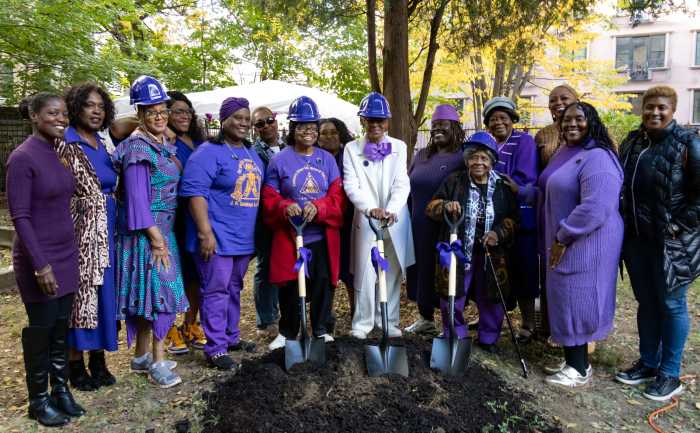In the first part of amNewYork Metro’s exclusive interview with Department of Correction Commissioner Louis Molina, the ex-marine and New York City Police Department detective revealed that he spent his first year at DOC working to motivate prisoners while also addressing a dangerously low staffing crisis — but those weren’t the only issues plaguing the system, he said.
When Molina took the reins of the department, Rikers Island was in a severe state of disrepair following years of failed upkeep from the previous administration, in part due to the penal island’s looming closure. Issues plagued employees and inmates alike, the commissioner said, all signs pointing to the jail itself having to be reexamined.
“We’ve replaced just over 700 cell doors. That’s a way to make sure that not only detainees are safe, but also that staff is safe,” Molina told amNewYork Metro. “We broke up gang housing — we used to have a gang housing strategy, which has never worked in any jurisdiction. We had a situation where not only were our staff at a disadvantage when they were trying to manage a housing living unit with all the same gang affiliation, but also when one person of that group decides to have a different opinion with the other 19, it puts that person in a dangerous situation. So, we broke up gang housing.”
Even with quality-of-life improvements, DOC faced one of its deadliest years on record in 2022, in which 19 people died in the department’s custody. This sparked outrage from the public in forms of rallies and protests across the five boroughs, and outside of City Hall.
It has been widely reported that a contributing factor to those deaths has been prisoners failing to attend scheduled medical appointments — an issue amNewYork Metro pressed the commissioner on.
“From my perspective, we have made significant improvement in that area,” Molina argued. “It is important to point out in fiscal year 2022 — if my memory serves me correctly — there were over 500,000 scheduled medical encounters, and that ranges anywhere from an eye doctor and dental appointment, to some other type of physical medical appointment.
“What we found was that a majority were refusing, and they’re refusing for a number of reasons,” the commissioner continued. “They might be refusing because the experience of waiting for medical services is unpleasant. They might refuse because it’s in conflict with a court date. They might refuse because their loved one is visiting that day. They might refuse because there is vocational training that they’re taking and they value that more than going to, you know, get their eyes checked for whatever reason to get glasses.”
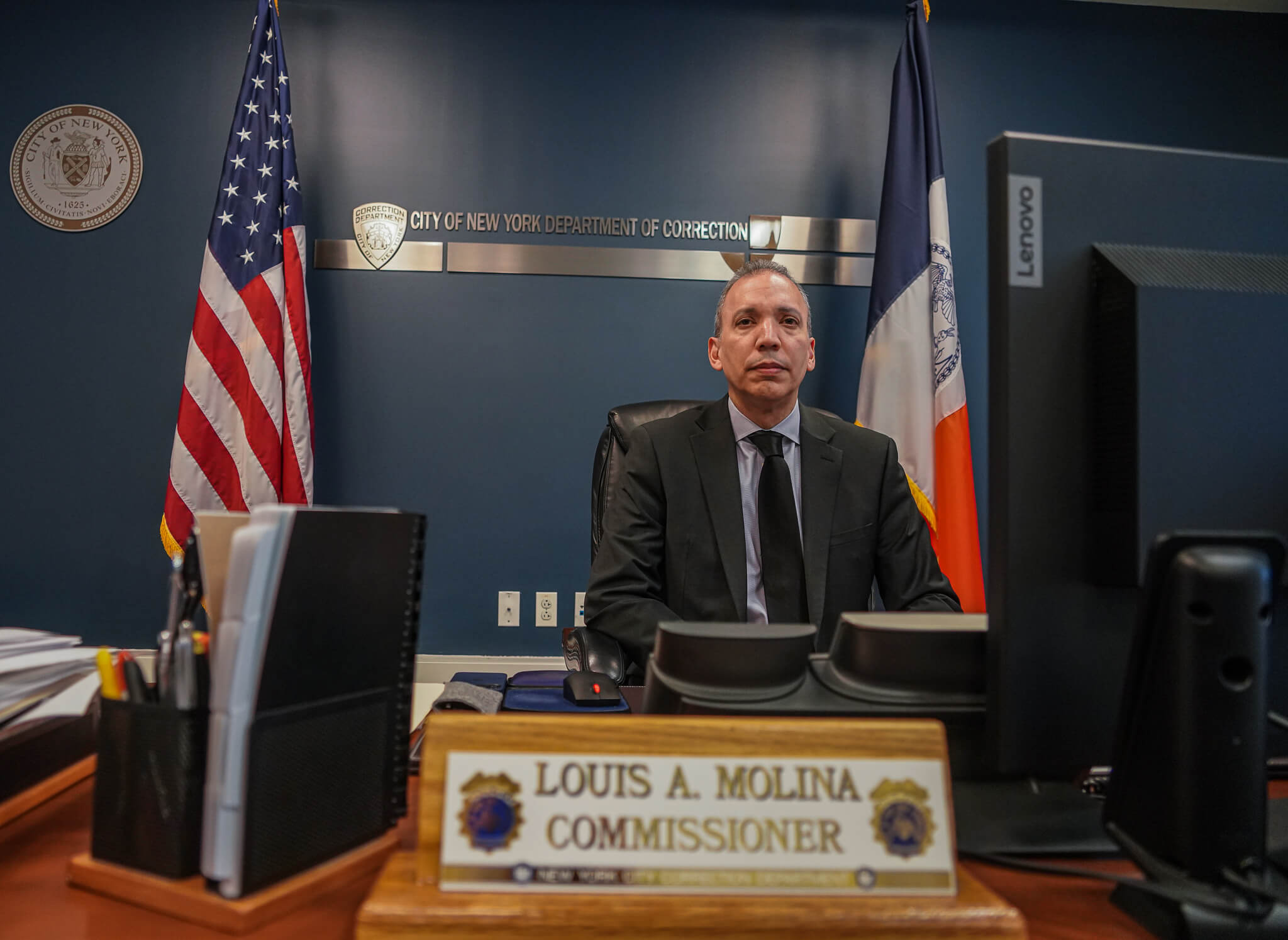
Looking ahead, Molina said the department is striving to find a middle ground through which detainees meet all of their scheduled appointments — not just medical ones, but also court appearances and the like. The DOC head stressed that, though improvements have already been made in the area, the department is also looking to become more efficient by “leveraging technology” to ensure management of services and appointments.
But missed medical appointments are not the only concern when it comes to life-threatening dangers, he said.
Jail contraband, such as weapons and illegal substances, have also contributed to serious injury and even death in some cases — something Molina says he has cracked down on, and something he believes saves lives.
“We reinstituted tactical search operations. In 2021, under the former administration, they only had one [search] that year,” Molina explained. “In 2022, we had over 80. So, with the increase of tactical search operations and facility level search operations, we have removed over 5,000 contraband weapons from the facilities and over 1,300 contraband narcotics, narcotics paraphernalia.”
The DOC has also increased its drug interdiction strategy when it comes to mail — a move that has sparked controversy amongst advocacy groups and elected officials.
“We want to move to scanning of mail but until that happens, we’ve increased the interdiction of contraband narcotics coming into the mail,” Molina said. “We saw in 2022 a 26% increase of us interdicting drugs coming into the mail. And that’s about just over 500 different items right that we intersected out of those 500 or so items. About 133 of those items were fentanyl. So, in the interdiction of fentanyl, that increase was like 291% over the interdiction that happened in 2021.”
According to DOC stats, over 3,500 uniform staff members have been trained and certified in how to utilize and deploy the lifesaving drug Narcan to aid those experiencing overdoses. Stopping the flow of contraband also means using canines to analyze visitors, a controversial practice for some, but Molina sees it as an imperative step in saving lives.
“In 2021, we had over 100,000 overdose deaths in America. Two thirds of deaths were connected to fentanyl. And, you know, jails and prisons in America are a reflection of the same sort of challenges,” he said. “I can understand the desperation of someone going through detox, they see their loved ones suffering, they want to do something to sort of alleviate that suffering and, on occasion, we have loved ones that bring in drugs and we have also increased the interdiction of that happening to visits as well. So, you know, we’ve done a lot to sort of deal with that issue.”
The commissioner also touched upon a new young adult facility dubbed The Peace Center, where detainees can experience driving simulators, digital literacy, gym and workout equipment, and gaming systems, among other amenities. Still, with all these improvements, Molina candidly stated that he is not declaring, nor is he stating that his work is over. He does, however, feel as though things are moving in the right direction.
“Certainly, I’m not doing any victory laps. You have a long way to go,” he said. “We are dealing with systemic challenges that have been in place and were just ignored for a decade. And listen, I get it, these are complex and hard problems to solve but they are worth solving because the people that are impacted by them — both our staff and people in custody — deserve a commissioner and a mayor that is invested with solving this issue. And we are not going to transition this problem to somebody else.”
At the end of the day, Molina’s priority is to problem solve.
“My goal as commissioner, at the end of what is going to be just one of the biggest honorable moments of my professional career, is that whomever comes after me is going to be solving a different set of problems than the problems I’m solving today,” he said. “If they’re solving the same set of problems, then we failed.”
